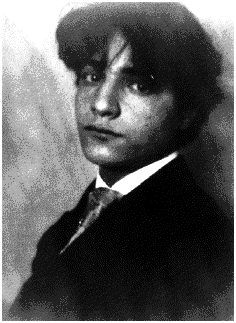Edge of Tears
Vénus Khoury-Ghata
Marilyn Hacker, Translator
(Graywolf)

For some reason, A House at the Edge of Tears made us think of The Painted Bird. In Jerzy Kosinsky's novel, a boy lives at the edge not of tears but Eastern European society driven mad by World War II --- holocaust and ruination of cities and countries, upheaval in which thousands and thousands of thousands were forced between camps of death and lands of the dying. Somehow, the boy survived, lived to go to the west and put his artful words down on paper so you and I could know his truth. It was all non-stop tragedy, but the tragedy was edged in a poetical language that made it possible for him (and us) to go on.
When the civil war erupts in Beirut, he and all the others from the mad-house are dumped onto the streets, and he spends the last days of his life in what is left of the house in which he grew up, in bed, trying to explain his poetry to his father, the one who drove him looney.
Too much awfulness, as I say, can drive the reader away (if not insane). But Khoury-Ghata and her translator have perfected a prose-poetry that takes off the edge, turns words back onto themselves. "Who does he like to read?" they ask of her brother when he is still a poet in Paris. "He admits to Rilke, after having juxtaposed the words orchard and asphalt, and books printed in Syrian and in Aramaic, because he does not know these two languages."
- He also loves trees. Not cedars, they are too old. He took to loathing them after he learned that behind the hill of cedars that overhangs his mother's village there was another, even higher hill, and then a mountain, and more mountains behind that.
"Questioning him about his life in Paris where he spent a year will leave you frustrated."
- He says he found there only words and expressions emptied of their sense. The Europeans want to go everywhere, do everything. Sometimes I say to myself that they ought to come here to learn to do nothing."
The reflection of Youri is a reflection of what was once his neighborhood.
- The cracked walls hold themselves back from falling. The same cracks in the mirror above the washbasin. Your face is divided in two, like your spirit.
"Half the city had set itself up as judges, the other half as the accused." Her brother is driven "by a hoard of devils," and, for fifteen years, so is Beirut. It is not a singular madness. It infects all of Lebanon. One of the neighbors, Doña Isabella, "survived all her lovers, and died several times before doing so for good, during a night of heavy bombardment."
- Since she risked being surprised by death improperly attired, she slept fully dressed, in her last days, seated, her red wig lighting up as each shell exploded, her rubies reflecting all the fires.